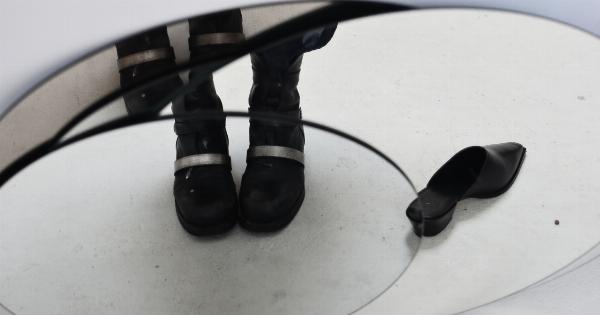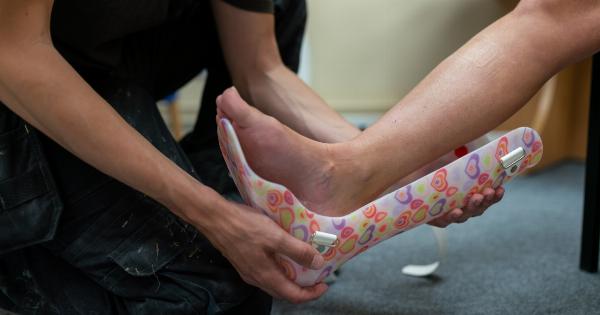Your feet play a vital role in your overall well-being. They support your body weight, help you walk, run, and perform various activities.
Apart from carrying out these functions, your feet can also provide valuable insights into your overall health condition. Certain signs and symptoms on your feet can indicate serious health concerns that require immediate attention.
Therefore, it is essential to pay attention to these signs and consult a healthcare professional if you notice any of the following undeniable signs:.
1. Swelling and Redness
Swelling and redness on your feet can be an indication of an underlying health issue. Conditions like cellulitis, arthritis, gout, or deep vein thrombosis can cause inflammation and lead to swelling and redness in your feet.
It’s crucial to take these symptoms seriously and seek medical advice to rule out any serious health concerns.
2. Numbness and Tingling Sensations
If you frequently experience numbness or tingling sensations in your feet, it could be a sign of diabetes or peripheral neuropathy. High blood sugar levels can damage the nerves in your extremities, including your feet.
Ignoring these symptoms may lead to further complications, so it’s important to consult a healthcare professional for evaluation and appropriate management.
3. Persistent Foot Pain
Foot pain that persists for an extended period should not be ignored. It could be a sign of various conditions, such as plantar fasciitis, stress fractures, arthritis, or nerve damage.
Seeking medical advice can help identify the underlying cause and provide appropriate treatment options to alleviate the pain.
4. Changes in Skin Color or Texture
If you notice any drastic changes in the color or texture of your skin, especially on your feet, it might indicate an underlying health issue.
Pale or blue-tinged skin can be a sign of poor circulation, while skin dryness and flakiness may indicate a fungal infection. A dermatologist or a healthcare professional can diagnose the exact cause and recommend appropriate treatment.
5. Sores or Wounds That Won’t Heal
Open sores or wounds on your feet that do not heal properly can be a sign of poor circulation or underlying diabetes. Diabetes can impair blood flow and compromise the body’s natural healing process, leading to slow wound healing.
If you have a persistent sore that shows no signs of improvement, it’s essential to seek medical attention to prevent further complications or infections.
6. Thick, Brittle, or Discolored Toenails
Abnormal changes in your toenails, such as thickening, brittleness, or discoloration, can indicate fungal nail infections or even underlying systemic conditions like psoriasis or thyroid disorders.
Consulting a podiatrist or dermatologist can help determine the cause and provide appropriate treatment options.
7. Cold Feet
If your feet constantly feel cold, it could be a sign of poor circulation or nerve damage. Peripheral artery disease (PAD) can lead to decreased blood flow to the extremities, causing cold feet.
Additionally, conditions like Raynaud’s disease or neuropathy can also cause a sensation of cold feet. Seeking medical advice is vital to identify the underlying cause and manage the symptoms effectively.
8. Swollen or Painful Joints
Swollen or painful joints in your feet, such as your toes or ankles, can indicate underlying arthritis or gout. These conditions can result in inflammation and joint damage if left untreated.
Consulting a rheumatologist can help diagnose the condition and provide appropriate management strategies to alleviate pain and prevent further joint damage.
9. Corns, Calluses, or Bunions
The presence of corns, calluses, or bunions can indicate excessive pressure or friction on certain areas of your feet. Ill-fitting shoes, abnormal foot mechanics, or underlying foot deformities can be contributing factors.
These conditions can cause discomfort and affect your overall mobility. Consulting a podiatrist can help address the underlying causes and provide appropriate treatment options.
10. Rapid Changes in Foot Size or Shape
If you notice a sudden change in your foot size or shape, it could be a sign of a medical condition. Conditions like Charcot foot, a complication of diabetes, can lead to progressive bone and joint deformities.
Prompt medical attention is necessary to prevent further complications and manage the condition effectively.
Conclusion
Your feet serve as early warning signs for many serious health concerns. Paying attention to any changes in your feet, such as swelling, persistent pain, numbness, or skin abnormalities, is crucial.
Recognizing these signals and seeking timely medical advice can help diagnose and manage underlying health conditions at an early stage, leading to better outcomes. Do not ignore the undeniable signs on your feet; instead, prioritize your foot health as an integral part of your overall well-being.




























